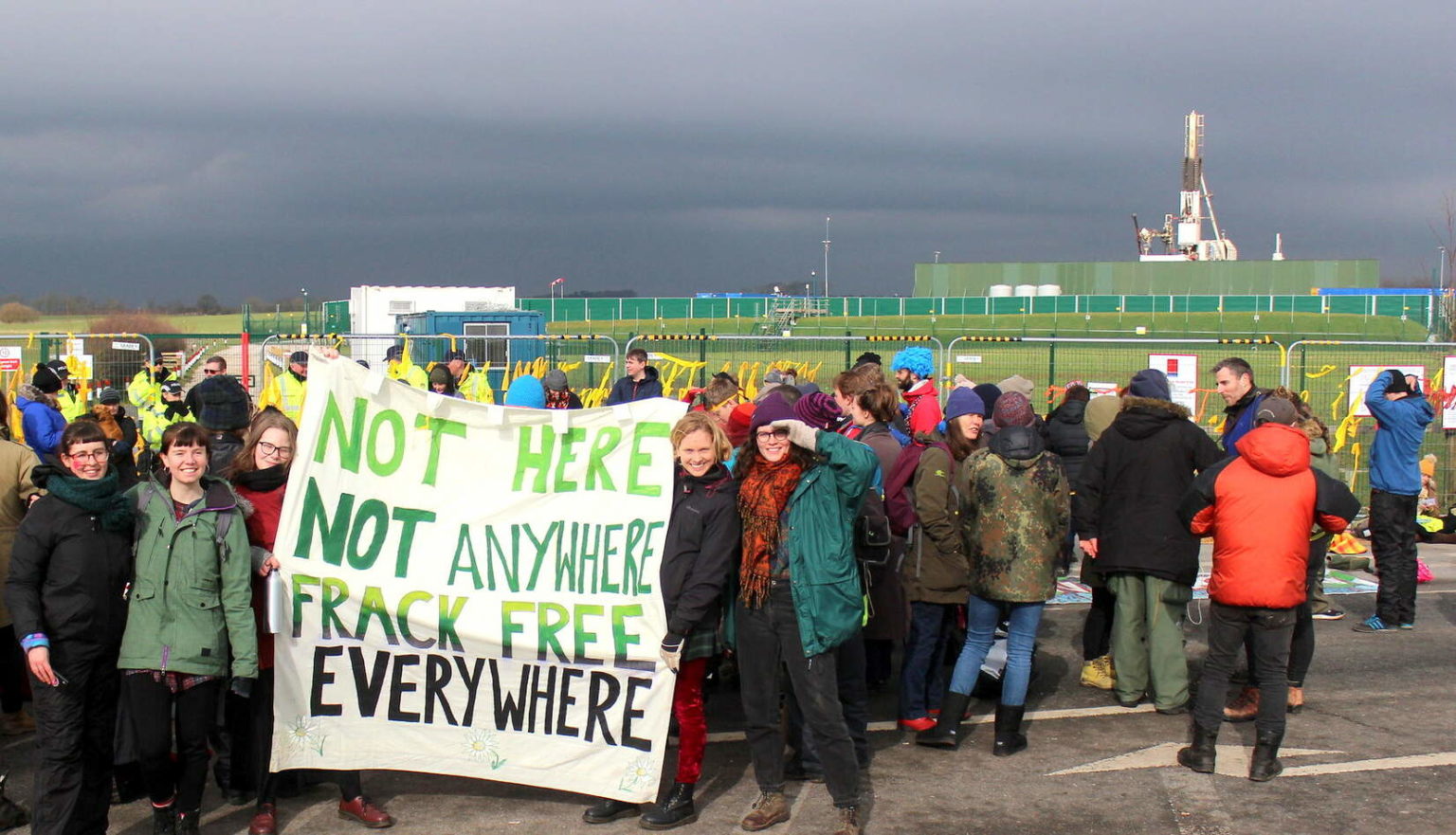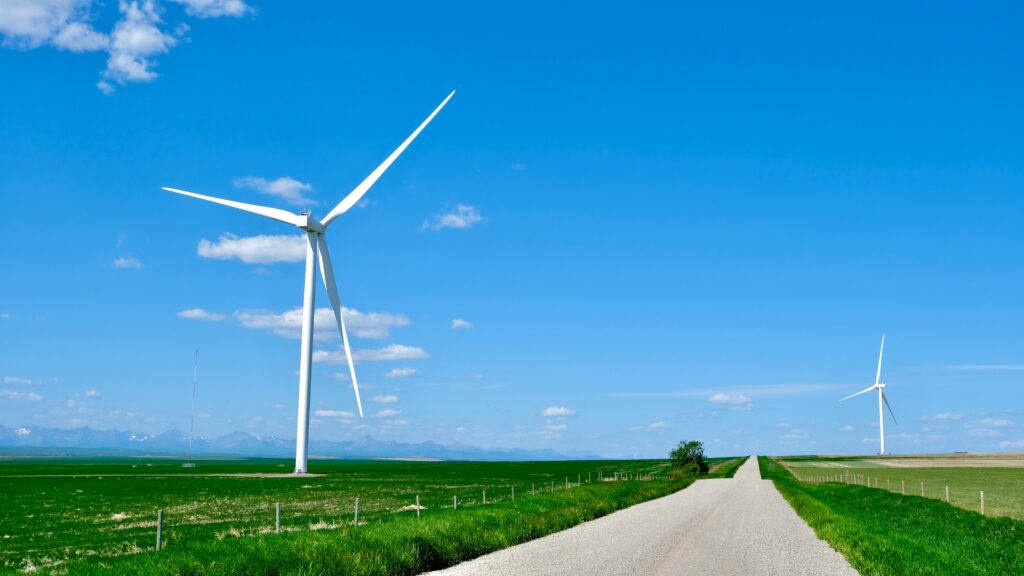After almost a thousand days of protest, Cuadrilla has abandoned its fracking site at Preston New Road in Lancashire – but is the company gone for good, or is this just a temporary reprieve for the local community?
At the end of September, Cuadrilla announced that it would be removing its fracking equipment from the site. A series of tremors meant that work at the site had already been halted until the Oil And Gas Authority had conducted a technical review, a process that is still ongoing.
The energy firm’s current permission to frack and drill at Preston New Road expires on 30 November, and the company confirmed that no further fracking would take place ahead of that date. The news was met with cheers by campaigners, many of whom have held daily vigil outside the Cuadrilla site since January 2017.
But the story isn’t over for Cuadrilla. The company confirmed two weeks’ later that it would still apply for an extension to its licence beyond November, contingent upon the outcome of technical reviews by the Oil and Gas Authority, which would allow the company to drill until at least 2021.
“People have put down their tools for the moment but they haven’t gone home,” said Gina Dowding, a Lancashire county councillor representing the Green Party, and an MEP for the North West. “Everybody I’ve spoken to has said, ‘Not until categorically this company itself declares its leaving will everyone completely relax.’”
Like what you’re reading? Help keep DeSmog reporting from the frontlines of the climate crisis by becoming a patron today!
Local council conditions
The application would involve taking the decision back to Lancashire County Council, which rejected Cuadrilla’s previous application to frack in 2015. The local council’s decision was overturned by the central government which was, at that point, determined to support the growth of a British shale gas industry.
But three years on from Cuadrilla’s initial rejection, conditions are different, both in Lancashire and at the national government level.
The Conservatives gained control of Lancashire County Council in 2017, where Labour had previously been the largest party. At the very top, David Cameron is no longer in power, and Boris Johnson is leading a minority government, with yet another election around the corner.
“Even inside the conservative party, there’s no consensus that fracking is a great idea,” said David Powell, head of environment and green transition at the New Economics Foundation. “MPs are under a lot of pressure locally to oppose it, and the government doesn’t have a majority.”
A report by the National Audit Office found that the UK has spent £32.7 million to support fracking since 2011, yet had only drilled three wells, despite plans to have established 20 by the middle of next year.
The fracking industry has called for the government to relax regulations on earth tremors, the stringency of which have led to an impasse for drilling in the UK. But the government has so far refused to bend, meaning that companies must halt work if they trigger earthquakes above a 0.5 magnitude. If those regulations are going to be changed, it’s going to be withouth the help of local pro-fracking lobby group, Lancashire For Shale, which recently announced it is being “wound down”.
Read more – Frack Off: Meet the Campaigners Protecting Lancashire from Fracking
Despite strong local opposition to fracking, councillors on the Lancashire Council Development Control Committee must have “sustainable” reasons, founded in the planning process, to reject a fracking planning application.
“If there were going to be any further applications, whether it’s in my division or any other division, I would like to see an independent geological survey undertaken,” said Paul Hayhurst, the independent councillor who proposed the 2015 motion to refuse Cuadrilla permission to drill.
Government support
If the council did again reject a future application by Cuadrilla, the central government could again overturn it – though given the current political upheaval, this decision could be in the hands of a new government that is less sympathetic to fracking. A Labour victory in any forthcoming election would likely spell defeat for the fracking industry – the party has promised to ban the practice “once and for all”.
While the government still officially supports fracking, and Boris Johnson has backed it in the past (famously declaring that London should leave no stone unfracked while he was mayor), an imminent government white paper on energy is reportedly set to overlook the technology in favour of renewable energy.
Both the Liberal Democrats and the Green Party support a ban on fracking, and Ireland and Scotland have already called a halt to it.
“Cuadrilla is not stupid. They’re a business,” says Powell. “At some point I wouldn’t be at all surprised if they look at the writing on the wall and they go: how long are we going to keep throwing money at this thing that local people don’t want, that ministers say they want but they’re not about to let us cause big tremors in pursuit of, and if Jeremy Corbyn held the balance of power tomorrow we wouldn’t be allowed to do anyway?”
Public antipathy
Socially, too, Cuadrilla is in a different place now to four years ago. Polls suggest that support for fracking is at an all-time low. Those opposed to the industry now have four more years of evidence under their belts of the damage that it can cause in local communities.
“Given the councillors have seen the wreckage that comes with the fracking industry, I would hope they would be able to make a strong case,” said Dowding. “I think it would be a foolish set of councillors that passed it.”
All this remains hypothetical: Cuadrilla, despite its bullishness, may yet decide against re-submitting its application. “I think the company is putting on a brave face,” Dowding adds. “I think the industry’s dead in the water.”
Cuadrilla’s spectre may continue to hover over the UK’s energy sector, but as the UK’s ‘shale revolution’ is now represented by an empty field in Preston, it’s easy to see why protesters are cautiously optimistic.
DeSmog UK has been covering the Lancashire fracking protests for years. Please help us do more by becoming a patron today.
Image: Ric Lander/Flickr CC BY–NC–SA 2.0
Subscribe to our newsletter
Stay up to date with DeSmog news and alerts







